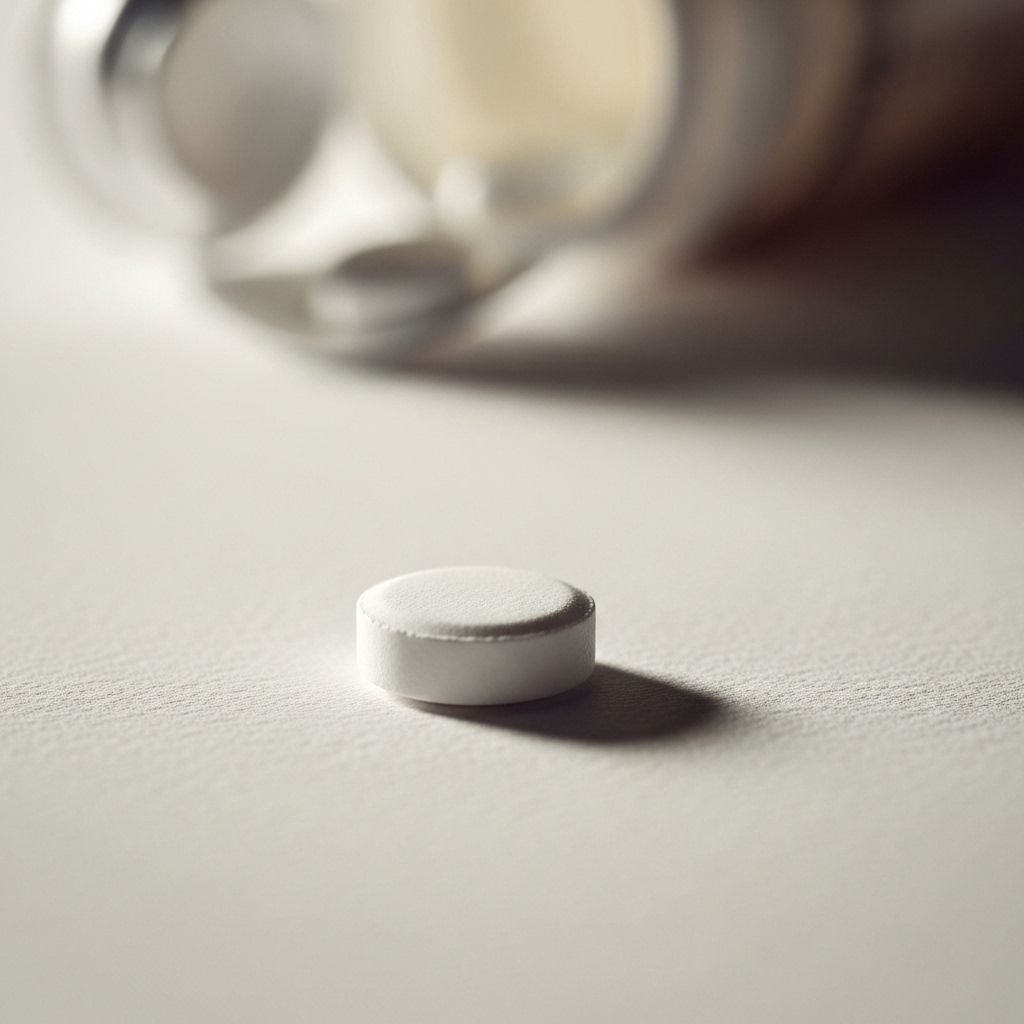When to Take Low-Dose Aspirin: What Patients Need to Know
Consistent routines and risk assessment improve medication safety and effectiveness.

Millions of Americans have questions about daily low-dose aspirin: Who really needs it? Is it still recommended for heart disease prevention? What’s the best time to take it? With over 48% of adults affected by some form of cardiovascular disease, the role of low-dose aspirin continues to evolve, and understanding these latest recommendations is crucial for informed health decisions.
Why Do Some People Take Low-Dose Aspirin?
Low-dose aspirin—usually 81 mg in the U.S.—acts as a blood thinner, preventing blood clots that could block arteries and cause heart attacks or strokes. Cardiologists typically recommend it for patients who have:
- Established atherosclerotic disease (cholesterol plaque in arteries)
- History of heart attack or stroke
- Undergone cardiovascular procedures, such as stent placement, bypass surgery, or valve replacement
For these individuals, aspirin can help reduce the risk of another cardiovascular event. Some studies also point to a possible reduction in cancer risk (lung, breast, and colorectal) with long-term use, though this effect may depend on individual patient factors.
How Does Low-Dose Aspirin Work?
Aspirin inhibits the function of platelets, preventing them from clumping together to form clots. This lowers the chance of a blockage in the heart or brain, thus reducing the risk of heart attack and stroke. Because it impairs blood clotting, aspirin’s benefits are weighed carefully against its bleeding risks.
What Is a Low-Dose Aspirin Regimen?
Technically, any dose of aspirin ≤100 mg is considered low dose, but most physicians in the United States recommend 81 mg daily. The United States Preventive Services Task Force (USPSTF) gives these key recommendations for using aspirin to prevent cardiovascular disease:
- Adults aged 40-59: Consider daily low-dose aspirin if the individual has a calculated 10%-or-higher 10-year risk of developing heart disease.
- Adults 60 or older: Daily low-dose aspirin is not recommended for the primary prevention of heart disease. Decisions must always be personalized.
Always discuss with your healthcare provider before starting or stopping aspirin, as recommendations are customized based on your history, risks, and current medications.
Who Should Consider Low-Dose Aspirin?
- Patients with a previous heart attack or stroke
- Those with procedures for coronary artery disease (such as stents or bypass surgery)
- People at significant risk for future cardiovascular events (determined by risk calculators and sometimes genetic tests)
Who Should Not Take Low-Dose Aspirin?
Aspirin is not safe for everyone. Because it increases bleeding risk, some people should not use it unless directed by a doctor, including those who:
- Have a history of gastrointestinal bleeding or stomach ulcers
- Are at high risk for falls or trauma
- Are on other blood-thinning medications
- Have an allergy or intolerance to aspirin
Individuals with a tendency toward bleeding disorders should consult their healthcare provider. The possible harms of daily aspirin (including life-threatening internal bleeding) in people without cardiovascular disease often outweigh the potential benefits.
Primary vs. Secondary Prevention: Who Benefits Most?
| Prevention Category | Who It Applies To | Aspirin Use |
|---|---|---|
| Primary Prevention | No heart attack, stroke, or blocked artery yet, but at risk | Only for selected high-risk adults age 40–59, under medical supervision |
| Secondary Prevention | History of cardiovascular disease or certain cardiac procedures | Often recommended, unless contraindicated by bleeding risk |
Key Points for Primary Prevention
- Focuses on avoiding heart disease and stroke before they happen.
- Requires assessment of individual risk factors—such as age, blood pressure, cholesterol, and diabetes status.
- Doctors may use cardiovascular risk calculators and sometimes genetic testing to guide this decision.
Key Points for Secondary Prevention
- Aims to prevent a recurrence of heart attacks or strokes in people who have already been diagnosed.
- Includes lifestyle changes and medications (including aspirin if appropriate).
- Often a cornerstone of treatment unless a major bleeding risk exists.
Risks and Side Effects of Low-Dose Aspirin
While aspirin can help prevent clotting, it also increases bleeding risk in several ways:
- Stomach pain, heartburn, or irritation
- Increased risk of gastrointestinal ulcers or bleeding
- Higher chance of bleeding in the brain (especially with trauma)
- Allergic reactions, such as rash, shortness of breath, or swelling (very rare)
- Potential drug interactions with other anticoagulants, corticosteroids, or non-steroidal anti-inflammatory drugs (NSAIDs)
These risks are typically higher in adults over age 60, those with a history of bleeding, and people with certain chronic medical conditions.
Is Timing Important? When Should You Take Low-Dose Aspirin?
Emerging research suggests that the timing of low-dose aspirin might influence its protective effects, though conclusive evidence is still developing. Some studies and experts have considered whether taking aspirin at night offers greater protection against heart attack or stroke during the first few hours after waking—when risk is highest due to changes in blood pressure and clotting factors.
However, the current expert consensus is as follows:
- Take aspirin at the same time daily, as prescribed by your doctor.
- Morning or night use may both be acceptable, unless advised otherwise by a physician.
- Consistency is more important than the specific time of day.
- Take with food or a glass of water to minimize gastrointestinal discomfort.
As always, any changes to your regimen or questions about timing should be discussed with your healthcare provider.
Other Strategies for Heart Health
While medications like aspirin are powerful, they are just one tool for cardiovascular prevention. Risk factors can often be managed by maintaining a heart-healthy lifestyle, including:
- Eating a balanced, low-sodium, low-saturated fat diet
- Engaging in regular moderate-intensity exercise
- Not smoking and avoiding tobacco products
- Managing blood pressure, cholesterol, and blood sugar
- Maintaining a healthy weight
Frequently Asked Questions (FAQs)
Is low-dose aspirin the same as “baby aspirin”?
Low-dose aspirin (81 mg) is colloquially called “baby aspirin,” but it is not safe or intended for children under 16 due to risks like Reye’s Syndrome. It is a term used for adult preventive heart health.
Can low-dose aspirin help prevent cancer?
Some research suggests that long-term use of low-dose aspirin may reduce the risk of some cancers, such as colorectal, breast, and lung, but the evidence is mixed. Aspirin should not be used solely for cancer prevention without discussing with a health professional.
Can I start low-dose aspirin on my own?
No, never start a regular aspirin regimen without consulting your healthcare provider. The risks of bleeding or drug interaction may outweigh potential benefits for many people.
What should I do if I miss a dose?
If you forget a dose but remember soon after, take it as soon as possible. If it’s almost time for your next dose, skip the missed one and resume your regular schedule. Do not double doses.
Are there side effects with long-term use?
Yes, possible side effects include stomach pain, ulcers, and increased risk of gastrointestinal or internal bleeding, especially with long-term and high-dose use.
Can I take aspirin with other medications?
Aspirin may interact with blood thinners, certain antidepressants, corticosteroids, and NSAIDs. Always inform your healthcare provider about all medications and supplements you are taking.
What if I have a planned surgery or dental procedure?
Inform your doctor or dentist in advance. You may be advised to stop aspirin several days beforehand to lower bleeding risks. Never stop aspirin abruptly without medical approval.
Is daily aspirin still recommended for everyone over 50?
No. Guidelines have changed: daily low-dose aspirin is not routinely recommended for primary prevention in healthy older adults. It is now used much more selectively, based on individual risk factors and doctor guidance.
What signs of bleeding should I look for while on aspirin?
- Unusual or excessive bruising
- Blood in stool or urine
- Coughing or vomiting blood
- Persistent or unexplained nosebleeds
- Stomach pain, black or tarry stools (may indicate gastrointestinal bleeding)
If you experience any of these symptoms, seek medical attention promptly.
Key Takeaways
- Low-dose aspirin provides substantial benefits for people with confirmed cardiovascular disease or procedures, but is not for everyone.
- Risks include serious bleeding, especially in people over 60 or with a history of gastrointestinal or bleeding problems.
- Never self-initiate aspirin therapy—always consult your healthcare provider first.
- There is no definitive best time of day to take it; follow your doctor’s guidance and be consistent with timing.
- Heart health requires a multi-pronged approach, including lifestyle changes and appropriate medications.
Consult your physician for recommendations tailored to your health profile before beginning or ending any aspirin regimen. Being informed and proactive is the best way to protect your cardiovascular health and make safe, evidence-based choices.
References
- https://www.goodhousekeeping.com/health/a65448814/when-to-take-low-dose-aspirin/
- https://www.goodrx.com/aspirin/low-dose-aspirin-heart-problems
- https://pmc.ncbi.nlm.nih.gov/articles/PMC5903373/
- https://pubmed.ncbi.nlm.nih.gov/35570250/
- https://jamanetwork.com/journals/jamanetworkopen/fullarticle/2781119
- https://www.uspreventiveservicestaskforce.org/uspstf/recommendation/aspirin-to-prevent-cardiovascular-disease-and-cancer-april-2016
Read full bio of Sneha Tete












